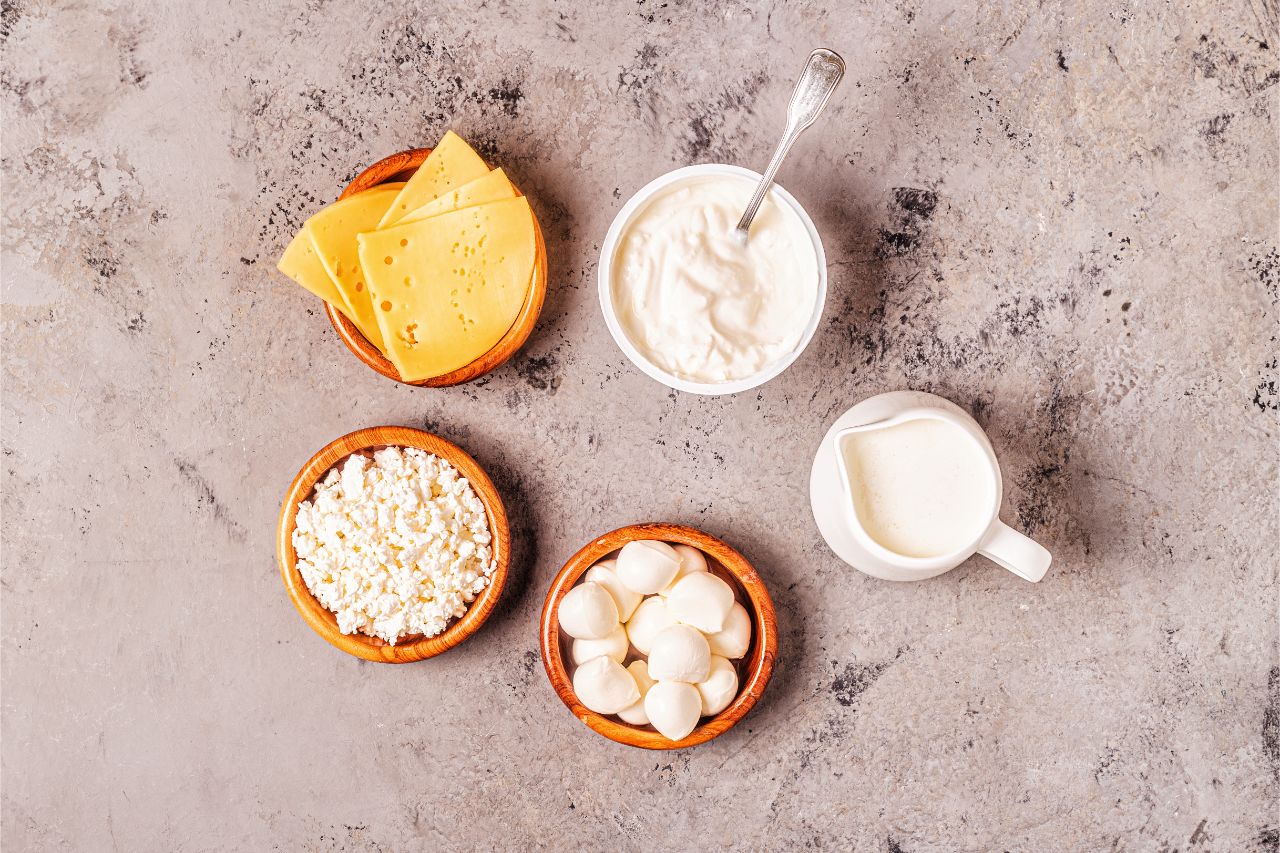
What Are Probiotics?
What are probiotics?
- Combination of live microorganisms
- Maintains a healthy balance in your microbiome
- Has key characteristics
- Supports digestive health
- May play a role in cancer and immunity
- Is linked to improved oral health
Your body contains trillions upon trillions of bacteria and fungi, which play a vital role in helping you function at your best every day. Outnumbering your cells 10 to 1, microorganisms are a crucial part of your body.
Going through the aisles of your local health store, you might have seen a bottle of supplements called ‘probiotics,’ with the label claiming these pills help out your microorganisms, boosting your ability to digest foods and fend off diseases. But what are probiotics? And what can they actually do for your health? Read on to find out!
Combination of live microorganisms

Simply put, probiotics are a combination of live bacteria and yeasts that naturally live in your body. While we associate the word ‘bacteria’ with ‘unhealthy,’ there are several ‘good’ ones that our body needs — and this kind is what probiotics are made of. This good bacteria is used by several systems (like your immune and digestive systems), and having the right amount of them helps your body stay healthy and function properly.
Maintains a healthy balance in your microbiome
But why is this so important to our overall health? Probiotics and the bacteria and yeast it’s composed of are just a small piece of a larger picture — your microbiome. Your microbiome is a diverse community of microorganisms, which are:
- Bacteria
- Fungi and yeast
- Viruses
- Protozoa
The bacteria — good and bad — comprise the vast majority. At any point, your body is home to a complex ecosystem of up to 500 different bacterial species. The balance between the different species needs to be maintained for your microbiome to continue fulfilling its role: help digest our food, regulate our immune responses, maintain levels of bad bacteria, and produce vitamins.
Without the assistance of probiotics, your levels of good bacteria may lessen. As a result, bad bacteria can continue to grow without interruption, which throws your microbiome out of balance. When this happens, you’re more prone to sickness, digestive problems, and vitamin deficiencies.
Has key characteristics

It’s important to note that because it deals with bacteria and fungi, there are strict rules on what can be classified as a probiotic food or supplement. So what determines if a mix of bacteria and fungi is a probiotic? First, it must have these key characteristics:
- Must be isolated from a human.
- Must be able to survive in your intestine after being eaten
- Has a proven health benefit for humans
- Must be safe to consume
Thus, not all substances that contain these microorganisms can be called true probiotics. Furthermore, probiotics are generally only made from specific types of bacteria, the most common being the Lactobacillus and Bifidobacterium species. Some probiotics also contain a yeast called Saccharomyces boulardii.
Supports digestive health
Probiotics don’t just help your digestive tract function, it also helps keep it healthy. Adding probiotics to your diet has been shown in several studies to reduce and even treat symptoms of diarrhea.
Certain strains of probiotics (such as lactobacillus) have also resulted in improvements for patients dealing with gastroenteritis, which is caused by inflammation of the gut’s lining and can trigger diarrhea.
Even when dealing with digestive issues like lactose intolerance — a deficiency in the enzyme lactase — probiotics has shown evidence of supporting healthier digestion. One study showed that Lactobacillus delbrueckii triggers your body’s production of lactase, which helps in processing the lactose in dairy products more efficiently. As a result, the usual symptoms of lactose intolerance, such as bloating and gas, were reduced.
May play a role in cancer and immunity

Probiotics, through their effects on our microbiome, play a critical role in our immune system. In extensive research involving different strains of probiotics, results showed that some probiotics could decrease the enzyme activity that results in cancer cells. In particular, the researchers believed that this reduced the risk of liver, colon, and bladder cancer. While the research is fairly new, probiotics show a lot of promise in this regard.
Probiotics also influence our immune responses and tend to have the biggest potential early in life. Some studies show that taking probiotic foods and supplements while pregnant reduces the chances of your child having allergic conditions, such as skin rashes and nasal congestion. The effects of a probiotic-rich diet also have significant benefits for children, with many studies proving it prevents chronic digestive disorders like celiac disease, Crohn’s disease, and ulcerative colitis.
Is linked to improved oral health
The benefits of probiotics can even be felt at the start of the digestive tract. In your mouth, where there are hundreds of bacteria that cause dental conditions, probiotics can help regulate them at much healthier levels. In one case, researchers studied groups of children who used probiotics. After two months, the group that received the probiotic had remarkable reductions in plaque, halitosis, and gingivitis risk.
Probiotics have also been shown to prevent cavities. Cavities are caused by a buildup of acid and bacteria on the surface of the tooth. Probiotics can help protect your teeth by lowering the pH on their surface. This creates a less acidic environment, which reduces the risk of developing a cavity.
Where can I get probiotics?
Probiotics can be found naturally in many foods, such as:
- Yogurt
- Kefir
- Miso (and other soy-based products)
- Buttermilk
- Cheese
- Kimchi
- Kombucha
- Other fermented foods
Apart from food, probiotics can also be added to your diet through the use of supplements — like Essential Supplements’ Probiotics. Our supplements contain an effective level of high-quality Bifidobacterium BB-12 and Lactobacillus rhamnosus LGG. Since these are derived from natural microorganisms, our probiotic supplements are safe to take and are proven to be very beneficial to your overall health.
Key Takeaway
So, what are probiotics? The living microorganisms that make up a probiotic nourish our body and improves the foundation of our health. Adding probiotics to your diet not only helps your microbiome but can also treat and prevent a variety of diseases.
If you’re concerned with your digestive, oral, and immune health, we highly recommend taking Essential Supplements’ Probiotics. With our carefully formulated blend of beneficial bacteria strains and our advanced delivery system, you can trust that our probiotics deliver results to your overall health.
Other Blogs

5 Energy-Boosting Vitamins Women Should Take
What are the essential energy-boosting vitamins women should take? Vitamin B-12 Vitamin D Iron Magnesium Vitamin C Overview This article talks about the different energy-boosting vitamins women should take for better health. It explains how various nutrients can help support their ability to maintain energy while also enhancing their overall wellness. These vitamins are important […]
READ MORE
Do I Need Vitamin D During the Summer?
Overview Taking care of your health doesn’t stop when the sun is out. Many people wonder whether they still need supplements during the summer season. In this article, readers can discover whether they need to take Vitamin D in the warmer months. The lack of Vitamin D can result in various conditions related to bone […]
READ MORE
Pro-Tips to Stay Healthy This Summer
What are pro-tips you should follow to stay healthy this summer? Boost immunity by taking vitamin C Strengthen bones and mood with vitamin D Stay hydrated throughout the day Reapply your sunscreen Dress for the heat Stay active Overview Sunny days come with challenges, but staying healthy in the heat is easy with the right […]
READ MORE